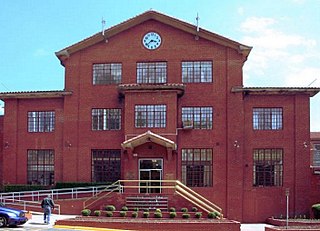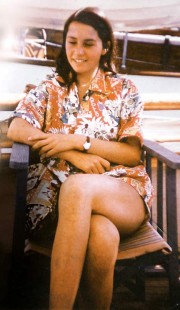Contract killing is a form of murder or assassination in which one party hires another party to kill a targeted person or people. It involves an agreement which includes some form of compensation, monetary or otherwise. It is an illegal agreement. Either party may be a person, group, or organization. Contract killing has been associated with organized crime, government conspiracies, dictatorships, and vendettas. For example, in the United States, the Italian- and Jewish-American organized crime gang Murder, Inc. committed hundreds of murders on behalf of the National Crime Syndicate during the 1930s and '40s.

Capital punishment in the United Kingdom predates the formation of the UK, having been used within the British Isles from ancient times until the second half of the 20th century. The last executions in the United Kingdom were by hanging, and took place in 1964; capital punishment for murder was suspended in 1965 and finally abolished in 1969. Although unused, the death penalty remained a legally defined punishment for certain offences such as treason until it was completely abolished in 1998; the last execution for treason took place in 1946. In 2004, Protocol No. 13 to the European Convention on Human Rights became binding on the United Kingdom; it prohibits the restoration of the death penalty as long as the UK is a party to the convention.

In the United States, capital punishment is a legal penalty throughout the country at the federal level, in 27 states, and in American Samoa. It is also a legal penalty for some military offenses. Capital punishment has been abolished in 23 states and in the federal capital, Washington, D.C. It is usually applied for only the most serious crimes, such as aggravated murder. Although it is a legal penalty in 27 states, 20 states currently have the ability to execute death sentences, with the other seven, as well as the federal government, being subject to different types of moratoriums.

Krishna Nanan Maharaj is a British Trinidadian businessman. In 1987 he was convicted by a Florida court for the double murders of Chinese Jamaican businessmen Derrick Moo Young and Duane Moo Young, and was sentenced to death. Maharaj has always denied committing the murders, and according to the human rights organisation Reprieve, the case of Krishna Maharaj is "an epic miscarriage of justice".

Piparo is a village in Central Trinidad on the southern edge of the Central Range. The village has three main claims to fame:
- Piparo was the base of operations of Dole Chadee, a notorious drug lord who was executed in 1999 for the murder of four members of the Baboolal family.
- Piparo was the home of Ras Shorty I during his self-imposed break from the soca world. Living simply in this rural community Ras Shorty-I developed jamoo, a fusion of soca and gospel music.
- Piparo was the site of a large mud volcano eruption on February 22, 1997. The eruption covered an area of 2.5 km² and displaced 31 families. The mud volcano now lies active where the eruption took place.

The Hi-Fi murders were the torture of five people resulting in three deaths during a robbery at the Hi-fi Shop, a home audio store in Ogden, Utah, on the evening of April 22, 1974. Several men entered the Hi-fi Shop shortly before closing time and began taking hostages. They forced their victims to drink corrosive drain cleaner, which the perpetrators believed would fatally poison their hostages, but instead caused burns to their mouths and throats. Further violence included kicking a pen into an ear and the brutal rape of an eighteen-year-old woman, before three of the victims were fatally shot. The two surviving victims were left with life-changing injuries.

Michael X, born Michael de Freitas, was a Trinidad and Tobago-born self-styled black revolutionary and civil rights activist in 1960s London. He was also known as Michael Abdul Malik and Abdul Malik. Convicted of murder in 1972, Michael X was executed by hanging in 1975 in Port of Spain's Royal Gaol.

Capital punishment is a legal penalty in the U.S. state of Texas for murder, and participation in a felony resulting in death if committed by an individual who has attained or is over the age of 18.

Capital punishment in Singapore is a legal penalty. Executions in Singapore are carried out by long drop hanging, and usually take place at dawn. Thirty-three offences—including murder, drug trafficking, terrorism, use of firearms and kidnapping—warrant the death penalty under Singapore law.
Capital punishment is a legal penalty in Sri Lanka.
Wrongful execution is a miscarriage of justice occurring when an innocent person is put to death by capital punishment. Cases of wrongful execution are cited as an argument by opponents of capital punishment, while proponents say that the argument of innocence concerns the credibility of the justice system as a whole and does not solely undermine the use of the death penalty.
Mark Edward Gardner was an American murderer executed at the age of 43 by lethal injection by the state of Arkansas. He was convicted of the December 12, 1985 murders of Joe and Martha Joyce, as well as the rape and murder of their daughter, Sara Joyce McCurdy, in Sebastian County, Arkansas.

Utah State Prison (USP) was one of two prisons managed by the Utah Department of Corrections' Division of Institutional Operations. It was located in Draper, Utah, United States, about 20 miles (32 km) southwest of Salt Lake City. It was replaced by the Utah State Correctional Facility in July 2022.

Gale Ann Benson was a British model, socialite and daughter of Conservative MP Leonard Plugge. She was stabbed and buried alive in Trinidad and Tobago.

The Judiciary of Barbados is an independent branch of the Barbadian government, subject only to the Barbadian Constitution. It is headed by the Chief Justice of Barbados. Barbados is a common law jurisdiction, in which precedents from English law and British Commonwealth tradition may be taken into account.
Capital punishment is a legal penalty in Jamaica. Currently, the only crime punishable by death is aggravated murder. The method of execution is hanging. Jamaica was originally a British colony. The last person executed in Jamaica was Nathan Foster, who was convicted of murder and hanged in 1988. The Jamaican Parliament had placed a moratorium on the death penalty until 2009, when it was lifted. Since 2009, capital punishment is legal and executions in Jamaica could resume; however, there have been no executions since.

John David Duty was an American who was executed in Oklahoma for first-degree murder. According to the Oklahoma Department of Corrections, he was the first person in the United States to have been put to death with pentobarbital. A nationwide shortage of sodium thiopental led the state to incorporate the substitution into its protocol for lethal injections. Duty's case gained media attention because pentobarbital had typically been used to euthanize animals.
Capital punishment is a legal penalty in Trinidad and Tobago. The method of execution is hanging. Its last execution was of Anthony Briggs for murder on 28 July 1999. However, the country is still considered "retentionist' due to lack of "an established practice or policy against carrying out executions." Trinidad and Tobago is the only country in the Americas that retains the mandatory death penalty for murder.











